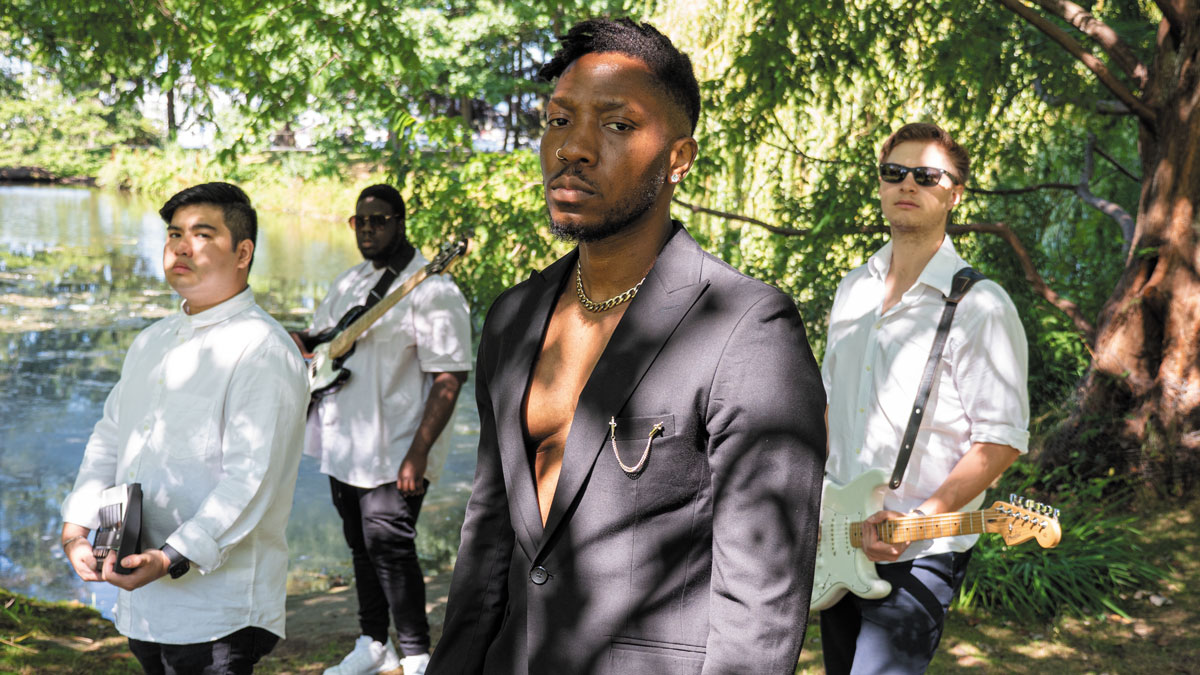He howled through the microphone and its reverb shook the floor.
Or maybe it was the leg work.
Doshs’ relationship with sound begins in the loud and boisterous city of Lagos, Nigeria. Moving to Toronto as a twenty-something, and now in Vancouver, he never forgot his hometown. Where music is as common as air, it’s hard not to breathe in deep.
Milena: How has music played a part in your life?
Dosh: Music has been like a companion, like a friend in some ways. Mainly in my house it was kind of different. I grew up in Nigeria, so there was music around us but there were no devices. There’s no 24 hour electricity, we could have no electricity for like a month. We would make music ourselves. We would play around, [there was this] clapping game called Ten-te, played out on the street. So the environment was musical, but also just the noise of the city itself — because there’s no electricity, a lot of people had generators, and generators make a lot of noise. Imagine everyone on the whole block having a generator. It’s funny, there was this BBC documentary called ‘Sounds of Lagos’, and [it was about the] street vendors who, in order to attract customers, do these different musical things. For example, there are food vendors who would have these bowls on their head, filled with food, and forks that they’d tap to attract people. So, I’d say for me, in my household, there was music around, but my parents weren’t really musical.
M: In your music — I noticed this with your freestyles — you’re always playing. Even if it’s just like a freestyle, or just a beat, you know, you’re still like humming. I don’t know if that makes sense.
Dosh: Yeah for sure, I like how you said it. You know, again, growing up in Lagos, it’s something that we always used to do — there’s a huge freestyle culture there. There’s this place we used to call “The Waterside”, and everyday after school everyone would go down there and rap. But again, the artform, the music itself, was about the voice as an instrument. I definitely appreciate artists, rappers, who know how to move with the music rather than being stiff with their art form. So yeah, it’s an interesting observation.
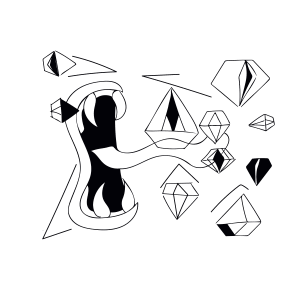
M: So swords, I want to talk about swords. Why do you like swords? I saw that there was a picture that you have where you have a sword and you’re cutting a Macbook in half.
Dosh: I think it’s maybe a metaphor for life, you know what I mean? I think that’s more so what I get from being “like a sword”. It’s like, when you have a skill, when you have a talent, it’s kind of like a blade. Because samurais have a discipline to the maintenance of their swords. They have to clean it. They have to sharpen it after a fight, or before a war. I think it’s like life — we’re like swords and if we don’t maintain ourselves, or sharpen our skills, then we can’t slice through the toughest of foes, or the toughest of things. I think I’ve been more cautious of the sword thing lately, because [it can be a form of] cultural appropriation. But I’ve always been fascinated with them. I actually own a sword, but I think I lost it.
M: How do you lose a sword?
Dosh: It’s my second sword. I’m just clumsy. I moved and I think I lost it somewhere.
M: Well, hopefully it doesn’t land in the hands of the wrong person.
Dosh: Yes, yes haha hopefully not.
M: Um okay. So also talking about movement. I wanted to talk about dance because performance seems like it’s a really big part of your stage presence for you. I don’t know if you do it on purpose, but it’s very contagious. Like you said, your songs are playful and that energy is definitely conveyed through movement for you. I also saw you include choreography with Alyssa Marshi for the song Dangerous, and I think that’s something I wanted to talk about because not all artists take the time to make choreographies for their songs.
Adewolf: You know what? Every artist has their way to express a show, you know? Personally, I don’t play any instruments, I’m just a vocal artist. And maybe in some ways, you know, I kind of use dancing as a type of instrument. You feel the music, and what do you gotta do? You gotta dance! Yeah, I think dancing is just how you feel the music. Dance is just an essential form of human expression. Some people say they can’t dance and I honestly believe there’s no such thing as that. Maybe you don’t know how to do movements that other people are accustomed to, or you can’t move in a certain way. But there’s no such thing as not being able to dance. It’s just like cooking — everybody can cook. Some people can cook better than others. It’s just like, you never saw it as a priority. But everybody can do it.
Dance for him is a response to music that asks us questions that are body answers. Similar to the rhythm that makes feet tap and hips sway, sometimes you need to feel it heavy in your spirit to be light on your toes.
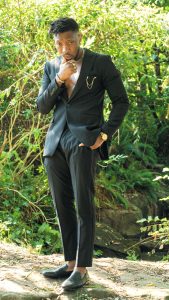
M: So before I ask about your team, the 3ribe, I should ask if i’m pronouncing it right — is it Thribe?
Dosh: Yes. But it’s honestly just Tribe. I think after I did it [replaced the T with 3], I realized — people are curious. It’s just interesting that it walks into your memory when you are trying to figure out how to pronounce something. Makes it more memorable.
Constantly working on sharpening that blade, building crafts and finding grooves to fill within it. Writing rhymes with a heavy hand and entering the stage with a right hook. They say the pen is mightier than the sword, for Adewolf they’re not in competition. Writing rhymes with a heavy hand and entering the stage with a right hook. Through his music you’ll hear that risk and danger is a match he’s willing to fight for.
M: It seems what you have is like a mentality of like…wanting to create statements, because you look up to people who are recognizable. Who have built an empire of themselves through their art. So would you say you have something that you’re building right now for yourself?
Adewolf: I guess more like the Egyptians said — just immortality. They say, life is like a fruit, and it’s just like how much you squeeze, and I’m still squeezing. Seeing what juices come out. See, I’m just having fun with it. I think my legacy is just making sure you push yourself. Reach better versions. I think we have an obligation to. We consume a lot of music. I feel like it’s greedy to take all these amazing things: art, music, all these forms — we can’t make it one sided. You gotta give back something, I think we all have something to keep back. So maybe my form is this, In whatever capacity, big or small, it doesn’t really matter but so far, it’s making the world better, especially now. A lot of people are not going as deep. They’re just going wider. They don’t want to go deep, there’s something deep this time of isolation has shown us, how the capitalist system is moving the pace for the world. That is just dangerous — we can’t let money decide how we should be moving.
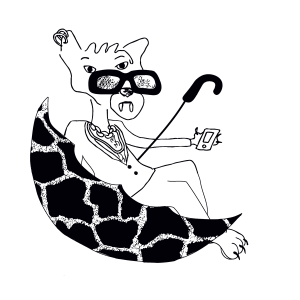
M: So let’s talk about 3ribe.
Adewolf: I always had a dream of just having a just crew, a band, where we can make music together like a family. I initially just kind of set it up to perform for a release party and well, I think we just kind of chilled. Jammed. The whole crew. We have Chris Bede on the drums […] Max Gage playing the piano, and also the guitar, and is like, an awesome musician. He’s also a producer and an engineer. Same thing with Ron Nazal — he plays the piano, but many other instruments as well. Then, we have Omo Iruoje. Omo was actually the first guy I met that introduced me to everyone. Omo is, again, a creative person. He’s a graphic designer. Then we have Abby Agnes, who is a singer. Abby’s a newer Member.
M: So genres — well, just tell me what are the genres that you feel, you play with 3ribe, describe the music to me.
Adewolf: I would say like, definitely aspects of hip hop, and aspects R&B. I think we definitely play around with some jazzy elements, definitely Afrobeats because I’d say that’s more my background. We throw in some reggae there too, and some dancehall. cause yeah, shit, I grew up on that. Bob Marley and all those tings.
M: What do you feel is your message? What you want people to feel when they listen to your music? Although I understand how that could be different based on the song as well.
Adewolf: Uh huh. Yeah, I’ll say maybe that it’s more like it’s OK to be yourself. You know what I mean? To be like, kind of awkward and insecure sometimes. It definitely takes a bit of courage, you know, taking time to understand yourself. […] They say to get the gold, you have to dig deeper. You have to be fighting to get that gold — not be cliche — but I feel like I am doing that most of the time. I have songs like, new phone who be dis, which is definitely more of a party song. But even in that, I’m kind of also talking about how sometimes you need to let go, in the steps to becoming your better self. Letting go of old friends, and having a new group of people who have the same mindset, you know, that line, “don’t call me if it ‘ain’t about biz” — dont be calling me if it’s not about progress. The lyrics “We shine like a compact disk” — you’re with people who want to shine. Stuff like that.
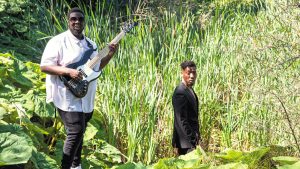
Adewolf entered the game with an urge to be palatable — but now, his sound has ripened into something less sweet, but that, he can savour. Music that is so shiny, it can’t help but see its reflection on the stage floor — like a Michael Jackson glove.
Growing into the letters that spell Adewolf has also meant anchoring himself in the 3ribe — a world made of trees that drip gold and a peacock-jeweled sound that hums the highlife of his hometown. Sounds enveloped in a persistently pink-toned percussion, with glittering accents. Vocals shine and improvisation is a dagger built of words that could split you open.
M: You kind of talked about how, when you were growing up, felt like a different time. And right now, we’re living in very racially tense and urgent times. How do you think your upcoming projects or the music that you’re working on right now have been affected by this atmosphere? Adewolf: I grew up in Lagos Island. Lagos Island is right by the Atlantic sea, and was one main ports where slave ships used to take Africans to the West — it’s the main hub. It’s crazy how everything comes full circle. Now I’m doing a bit more research. I’m understanding the systematic oppression, the pain, and there’s definitely some responsibility to speak about these things. To be confident in your culture and have a stance. I feel like working on the inside is a big part of this future progress. And I think, maybe, that’s what my new project is talking about. What’s inside, and how you can use that to build yourself Handle anything that comes. Whether it’s like, systematic oppression, whether it’s like actual racism. Yeah, it’s definitely important to talk about. How it’s going to be reflected in this project is something I’m still trying to figure out.
M: And how about the theme of love? How does that translate itself in music, or for your art? Is it a tone? Is it a rhythm?
Adewolf: I think more so it’s an action. Acting. You know, I love making music. I have to do more of the things I love. And I feel like if there was more love in the world, everywhere would just be a better place. I think for me, first is self-love, to be able to focus on my craft. I think love is also one of the most powerful things when you give it. It might not be tangible — but it’s creating something that moves. It moves people in a way that physical things can’t. That pretentious things can’t. It’s the most honest, pure, thing. That’s why sometimes some of it is helpful. Just some of it, not all of it.
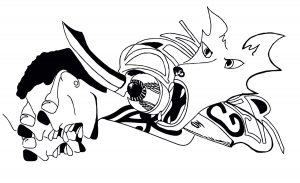
You can keep up with Adewolf on all major streaming and social media platforms here:
IG: @adewolfy


